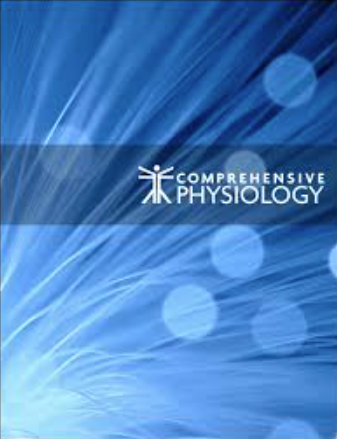下载PDF
{"title":"Pancreatic Crosstalk in the Disease Setting: Understanding the Impact of Exocrine Disease on Endocrine Function.","authors":"Catharina B P Villaca, Teresa L Mastracci","doi":"10.1002/cphy.c230008","DOIUrl":null,"url":null,"abstract":"<p><p>The exocrine and endocrine are functionally distinct compartments of the pancreas that have traditionally been studied as separate entities. However, studies of embryonic development, adult physiology, and disease pathogenesis suggest there may be critical communication between exocrine and endocrine cells. In fact, the incidence of the endocrine disease diabetes secondary to exocrine disease/dysfunction ranges from 25% to 80%, depending on the type and severity of the exocrine pathology. Therefore, it is necessary to investigate how exocrine-endocrine \"crosstalk\" may impact pancreatic function. In this article, we discuss common exocrine diseases, including cystic fibrosis, acute, hereditary, and chronic pancreatitis, and the impact of these exocrine diseases on endocrine function. Additionally, we review how obesity and fatty pancreas influence exocrine function and the impact on cellular communication between the exocrine and endocrine compartments. Interestingly, in all pathologies, there is evidence that signals from the exocrine disease contribute to endocrine dysfunction and the progression to diabetes. Continued research efforts to identify the mechanisms that underlie the crosstalk between various cell types in the pancreas are critical to understanding normal pancreatic physiology as well as disease states. © 2024 American Physiological Society. Compr Physiol 14:5371-5387, 2024.</p>","PeriodicalId":10573,"journal":{"name":"Comprehensive Physiology","volume":"14 2","pages":"5371-5387"},"PeriodicalIF":4.2000,"publicationDate":"2024-03-29","publicationTypes":"Journal Article","fieldsOfStudy":null,"isOpenAccess":false,"openAccessPdf":"https://www.ncbi.nlm.nih.gov/pmc/articles/PMC11425433/pdf/","citationCount":"0","resultStr":null,"platform":"Semanticscholar","paperid":null,"PeriodicalName":"Comprehensive Physiology","FirstCategoryId":"3","ListUrlMain":"https://doi.org/10.1002/cphy.c230008","RegionNum":2,"RegionCategory":"医学","ArticlePicture":[],"TitleCN":null,"AbstractTextCN":null,"PMCID":null,"EPubDate":"","PubModel":"","JCR":"Q1","JCRName":"PHYSIOLOGY","Score":null,"Total":0}
引用次数: 0
引用
批量引用
Abstract
The exocrine and endocrine are functionally distinct compartments of the pancreas that have traditionally been studied as separate entities. However, studies of embryonic development, adult physiology, and disease pathogenesis suggest there may be critical communication between exocrine and endocrine cells. In fact, the incidence of the endocrine disease diabetes secondary to exocrine disease/dysfunction ranges from 25% to 80%, depending on the type and severity of the exocrine pathology. Therefore, it is necessary to investigate how exocrine-endocrine "crosstalk" may impact pancreatic function. In this article, we discuss common exocrine diseases, including cystic fibrosis, acute, hereditary, and chronic pancreatitis, and the impact of these exocrine diseases on endocrine function. Additionally, we review how obesity and fatty pancreas influence exocrine function and the impact on cellular communication between the exocrine and endocrine compartments. Interestingly, in all pathologies, there is evidence that signals from the exocrine disease contribute to endocrine dysfunction and the progression to diabetes. Continued research efforts to identify the mechanisms that underlie the crosstalk between various cell types in the pancreas are critical to understanding normal pancreatic physiology as well as disease states. © 2024 American Physiological Society. Compr Physiol 14:5371-5387, 2024.
疾病背景下的胰腺串联:了解外分泌疾病对内分泌功能的影响。
胰腺的外分泌和内分泌在功能上是截然不同的,传统上一直被作为独立的实体进行研究。然而,对胚胎发育、成人生理学和疾病发病机理的研究表明,外分泌细胞和内分泌细胞之间可能存在重要的交流。事实上,继发于外分泌疾病/功能障碍的内分泌疾病糖尿病的发病率从 25% 到 80%不等,具体取决于外分泌病变的类型和严重程度。因此,有必要研究外分泌-内分泌 "串扰 "如何影响胰腺功能。在本文中,我们将讨论常见的外分泌疾病,包括囊性纤维化、急性、遗传性和慢性胰腺炎,以及这些外分泌疾病对内分泌功能的影响。此外,我们还回顾了肥胖和脂肪胰腺如何影响外分泌功能,以及对外分泌区和内分泌区之间细胞通讯的影响。有趣的是,在所有病症中,都有证据表明来自外分泌疾病的信号会导致内分泌功能失调并发展为糖尿病。继续进行研究以确定胰腺中各种细胞类型之间相互协作的机制,对于了解正常胰腺生理和疾病状态至关重要。© 2024 美国生理学会。Compr Physiol 14:5371-5387, 2024.
本文章由计算机程序翻译,如有差异,请以英文原文为准。


